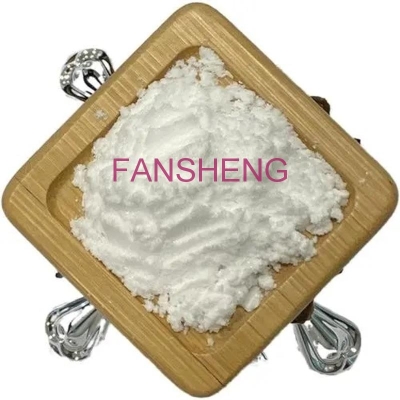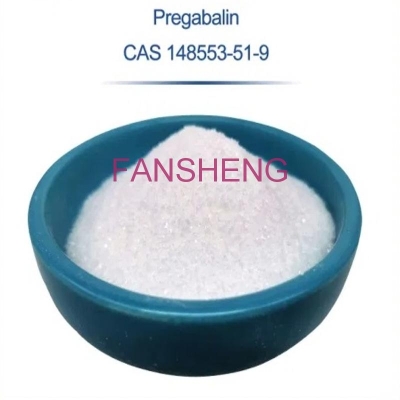-
Categories
-
Pharmaceutical Intermediates
-
Active Pharmaceutical Ingredients
-
Food Additives
- Industrial Coatings
- Agrochemicals
- Dyes and Pigments
- Surfactant
- Flavors and Fragrances
- Chemical Reagents
- Catalyst and Auxiliary
- Natural Products
- Inorganic Chemistry
-
Organic Chemistry
-
Biochemical Engineering
- Analytical Chemistry
- Cosmetic Ingredient
-
Pharmaceutical Intermediates
Promotion
ECHEMI Mall
Wholesale
Weekly Price
Exhibition
News
-
Trade Service
Click the blue word · Follow us Perioperative Dexmedetomidine or Lidocaine Infusion for the Prevention of Chronic Postoperative and Neuropathic Pain After Gynecological Surgery: A Randomized, Placebo-Controlled, Double-Blind Study Chronic postoperative pain and neuropathic pain after gynecological surgery: a randomized, placebo-controlled, double-blind study Introduction: The transition of acute to chronic postoperative pain (CPP) remains a significant burden to the rehabilitation of patients.
The research for adjuvants to prevent CPP continues; among others, dexmedetomidine and lidocaine seem promising agents.
We performed a long-term (1-year) follow-up to evaluate the effects of intraoperative iv infusion of dexmedetomidine and lidocaine on the occurrence of chronic pain after abdominal gynecological surgery.
The study endpoints were the development of CPP with or without neuropathic elements at 3, 6, and 12 months postoperatively.
We also identified possible risk factors for the transition of acute postoperative pain to CPP.
Introduction: Transition of acute to chronic postoperative pain (CPP) remains a significant burden on patient recovery
.
Adjuvant studies for the prevention of CPP continue; of these, dexmedetomidine and lidocaine appear to be promising agents
.
To this end, the authors performed a long-term (1-year) follow-up to evaluate the effect of intraoperative intravenous dexmedetomidine and lidocaine on the development of chronic pain after gynecological abdominal surgery
.
Study endpoints were the development of CPP with or without neuropathic factors at 3, 6, and 12 months postoperatively
.
This study also identified possible risk factors for the conversion of acute postoperative pain to CPP
.
Methods: This is a long-term follow-up of a randomized, placebo-controlled, double-blind study on women who underwent open abdominal gynecological surgery and received dexmedetomidine or lidocaine or placebo infusion perioperatively (n = 81).
The effect of these adjuvants on the development of CPP and neuropathic pain was assessed during a 12-month follow-up.
Eighty-one (81) women ASA I–II, aged between 30 and 70 years, were randomly assigned to receive either dexmedetomidine (DEX group) or lidocaine (LIDO group) or placebo (CONTROL group) perioperatively.
Before anesthesia induction, all patients received a loading intravenous dose of either 0.
6 lg/kg dexmedetomidine or 1.
5 mg/kg lidocaine or placebo, followed by 0.
6 lg/kg/h dexmedetomidine or 1.
5 mg/kg/h lidocaine or placebo until last suture.
Patients were followed up to obtain the long-term outcomes at 3, 6, and 12 months.
At these time-points, pain intensity was assessed with the Numerical Rating Scale, (NRS: 0–10) and the development of neuropathic elements with the Douleur Neuropathique 4 (DN4) score.
Prognostic parameters that could affect chronic pain and its components were also identified.
Methods: Long-term follow-up of a randomized, placebo-controlled, double-blind study of subjects undergoing gynecologic laparotomy and women who received dexmedetomidine, lidocaine, or placebo infusions in the perioperative period (n=81)
.
The effect of these adjuvants on the development of CPP and neuropathic pain was assessed during a 12-month follow-up period
.
Eighty-one ASA I–II women aged 30 to 70 years were randomly assigned to receive dexmedetomidine (DEX group) or lidocaine (LIDO) or placebo (CONTROL) in the perioperative period
.
Before induction of anesthesia, all patients received a loading intravenous dose of 0.
6 lg/kg dexmedetomidine or 1.
5 mg/kg lidocaine or placebo followed by 0.
6 lg/kg/h dexmedetomidine or 1.
5 mg /kg/h lidocaine or placebo until the last suture
.
Patients were followed for long-term outcomes at 3, 6, and 12 months
.
At these time points, pain intensity was assessed using the Numerical Rating Scale (NRS: 0–10) and the development of neuropathic factors was assessed using the Douleur Neurophique 4 (DN4) score
.
Prognostic parameters that may affect chronic pain and its components were also identified
.
Introduction: The transition of acute to chronic postoperative pain (CPP) remains a significant burden to the rehabilitation of patients.
The research for adjuvants to prevent CPP continues; among others, dexmedetomidine and lidocaine seem promising agents.
We performed a long-term (1 -year) follow-up to evaluate the effects of intraoperative iv infusion of dexmedetomidine and lidocaine on the occurrence of chronic pain after abdominal gynecological surgery.
The study endpoints were the development of CPP with or without neuropathic elements at 3, 6, and 12 months postoperatively.
We also identified possible risk factors for the transition of acute postoperative pain to CPP.
INTRODUCTION: Transition of acute to chronic postoperative pain (CPP) remains a significant burden on patient recovery
.
Adjuvant studies for the prevention of CPP continue; of these, dexmedetomidine and lidocaine appear to be promising agents
.
To this end, the authors performed a long-term (1-year) follow-up to evaluate the effect of intraoperative intravenous dexmedetomidine and lidocaine on the development of chronic pain after gynecological abdominal surgery
.
Study endpoints were the development of CPP with or without neuropathic factors at 3, 6, and 12 months postoperatively
.
This study also identified possible risk factors for the conversion of acute postoperative pain to CPP
.
Results: Data from 74 women were analyzed.
Dexmedetomidine significantly reduced NRS scores comparing to placebo at 3 months (p = 0.
018), while at 6 months, lidocaine was found superior to placebo (p = 0.
02), but not to dexmedetomidine, in preventing neuropathic pain (DN4<4).
Regarding secondary endpoints, higher NRS cough scores at 48 h were associated with statistically significant NRS and DN4 scores at 3, 6, and 12 months (p<0.
02).
At 6 months, a statistically significant correlation was also found between higher NRS values and older age (p = 0.
020).
Results: Data from 74 women were analysed
.
Dexmedetomidine significantly reduced NRS scores at 3 months compared to placebo (p=0.
018), while lidocaine was superior to placebo in preventing neuropathic pain at 6 months (p=0.
018) 0.
02), but not better than dexmedetomidine (DN4<4)
.
Regarding secondary endpoints, higher NRS cough scores at 48 hours were statistically significantly associated with NRS and DN4 scores at 3, 6, and 12 months (p<0.
02)
.
At 6 months, there was also a statistically significant correlation between higher NRS values and older age (p=0.
020)
.
Main results NRS cough (NRS, Numerical Rating Scale 0-10) at 48 hours in three study groups (DEX group: dexmedetomidine, LIDO: lidocaine, CONTROL: saline) and three in each intervention group NRS scores at time points
.
At 3 months, pain scores were statistically significantly lower in the DEX group compared to the control group (p=0.
018)
.
There were no other statistically significant differences in pain scores between groups at 3, 6, and 12 months
.
The DN4 scores of each treatment group at three time points are shown in Table 6
.
Although the control group appeared to have higher scores in all periods compared to the other two groups (Figure 2), these differences were not statistically significant (p > 0.
05).
The logistic regression model also showed that, depending on the treatment group, neuropathy Rational pain was statistically significantly different (p=0.
048)
.
This difference was observed between the lidocaine (0%) group and the control group (20%) (p=0.
02), but not between the other groups [DEX (4.
2%) vs.
the control group] (p=0.
106) and DEX and lidocaine (p=0.
442)]
.
The analysis showed that the 48-hour cough NRS score had a statistically significant effect on the DN4 score at three time periods (ie, 3 months, 6 months, and 12 months), with p values of 0.
01, 0.
01, and 0.
01, respectively
.
Therefore, the higher the DN4 value for all time periods, the higher the 48-hour NRS cough score value, as shown in Table 8
.
Perioperative infusion of dexmedetomidine or lidocaine for the prevention of chronic postoperative pain and neuropathic pain after gynecological surgery: a randomized, placebo-controlled, double-blind study - Pain and Treatment.
pdfLuffy Micro Signal | Luffy Medicine Channel Contribution | Bad Sensen
.
Typesetting|Meat







